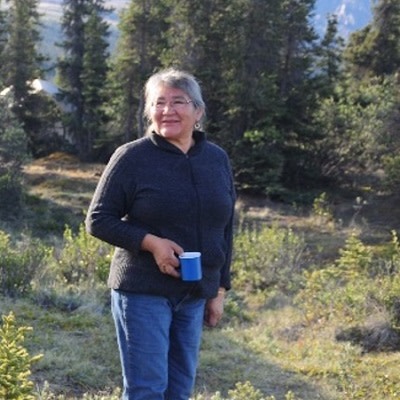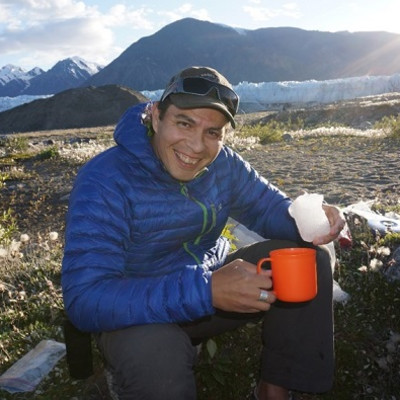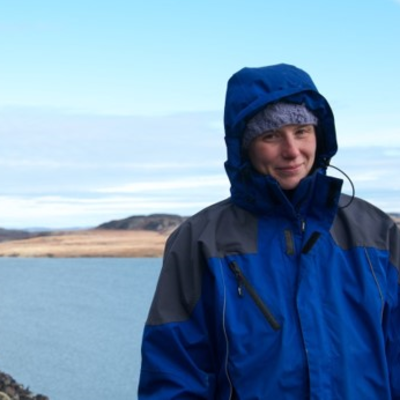Towards Reconciliation: 10 Calls to Action for Natural Scientists
Online Only
Monday,
Mar 15, 2021 at 1:00 PM
- 2:30 PM EDT
{
"name":"Towards Reconciliation: 10 Calls to Action for Natural Scientists",
"description": "https:\/\/ticketfi.com\/event\/4129\/towards-reconciliation-10-calls-to-action-for-natural-scientists\n\nThis free virtual event is organized and hosted by the Faculty of Science, Office of Research, and the Indigenous Initiatives Office at the University of Waterloo.\nPresentation co-produced by: \n\nMary Jane (Gùdia) Johnson, an Elder from Kluane First Nation, Lawrence Ignace, a policy analyst who is Anishinaabe, Heidi Swanson, a professor at University of Waterloo, Kate Ballegooyen, Resource Manager for Kluane First Nation, and Carmen Wong, ecologist for Kluane National Park and Reserve, Yukon. \n\nAbstract: \n\nIn 2015, after documenting testimonies from Indigenous survivors of the residential school system in Canada, the Truth and Reconciliation Commission released 94 Calls to Action to enable reconciliation between Indigenous and non-Indigenous Canadians. \n\nWithout personal connections to Indigenous communities, many Canadians fail to grasp the depth of intergenerational impacts of residential schools and associated systemic racism. Consequently, reconciliation remains an elusive concept. \n\nHere we outline 10 Calls to Action to natural scientists to enable reconciliation in their work. We focus on natural scientists because a common connection to the land should tie the social license of natural scientists more closely to Indigenous communities than currently exists. We also focus on natural sciences because of the underrepresentation of Indigenous peoples in this field. We draw on existing guidelines and our experiences in northern Canada. Our 10 Calls to Action are triggered by frustration. \n\nThe authors have witnessed examples where natural scientists treat Indigenous communities with blatant disrespect or with ignorance of Indigenous rights. These 10 Calls to Action challenge the scientific community to recognize that reconciliation requires a new way of conducting natural science, one that includes and respects Indigenous communities, rights, and knowledge leading to better scientific and community outcomes. \n\nWhile broadly discussing the paper’s 10 Calls to Action, the talk will focus primarily on three of the 10 Calls: \n\nCall 2: We call on natural scientists to recognize that generating knowledge about the land is a goal shared with Indigenous peoples and to seek meaningful relationships and possible collaboration for better outcomes for all involved. \n\nCall 3: We call on natural scientists to enable knowledge sharing and knowledge co-production. \n\nCall 5: We call upon natural scientists to provide meaningful opportunities for Indigenous community members, particularly youth, to experience and participate in science. \n \n\nIf you have any questions about this event, please contact Janessa Good, Events and Engagement Coordinator, Human Rights, Equity and Inclusion. \n\n",
"startDate":"2021-03-15",
"endDate":"2021-03-15",
"startTime":"13:00",
"endTime":"14:30",
"location":"",
"label":"Add to Calendar",
"options":[
"Apple",
"Google",
"iCal",
"Microsoft365",
"Outlook.com",
"Yahoo"
],
"timeZone":"US/Eastern",
"trigger":"click",
"inline":true,
"listStyle":"modal",
"iCalFileName":"invite.ics"
}
Event Details
This free virtual event is organized and hosted by the Faculty of Science, Office of Research, and the Indigenous Initiatives Office at the University of Waterloo.
Presentation co-produced by:Mary Jane (Gùdia) Johnson, an Elder from Kluane First Nation, Lawrence Ignace, a policy analyst who is Anishinaabe, Heidi Swanson, a professor at University of Waterloo, Kate Ballegooyen, Resource Manager for Kluane First Nation, and Carmen Wong, ecologist for Kluane National Park and Reserve, Yukon.
Abstract:
In 2015, after documenting testimonies from Indigenous survivors of the residential school system in Canada, the Truth and Reconciliation Commission released 94 Calls to Action to enable reconciliation between Indigenous and non-Indigenous Canadians.
Without personal connections to Indigenous communities, many Canadians fail to grasp the depth of intergenerational impacts of residential schools and associated systemic racism. Consequently, reconciliation remains an elusive concept.
Here we outline 10 Calls to Action to natural scientists to enable reconciliation in their work. We focus on natural scientists because a common connection to the land should tie the social license of natural scientists more closely to Indigenous communities than currently exists. We also focus on natural sciences because of the underrepresentation of Indigenous peoples in this field. We draw on existing guidelines and our experiences in northern Canada. Our 10 Calls to Action are triggered by frustration.
The authors have witnessed examples where natural scientists treat Indigenous communities with blatant disrespect or with ignorance of Indigenous rights. These 10 Calls to Action challenge the scientific community to recognize that reconciliation requires a new way of conducting natural science, one that includes and respects Indigenous communities, rights, and knowledge leading to better scientific and community outcomes.
While broadly discussing the paper’s 10 Calls to Action, the talk will focus primarily on three of the 10 Calls:
Call 2: We call on natural scientists to recognize that generating knowledge about the land is a goal shared with Indigenous peoples and to seek meaningful relationships and possible collaboration for better outcomes for all involved.
Call 3: We call on natural scientists to enable knowledge sharing and knowledge co-production.
Call 5: We call upon natural scientists to provide meaningful opportunities for Indigenous community members, particularly youth, to experience and participate in science.
If you have any questions about this event, please contact Janessa Good, Events and Engagement Coordinator, Human Rights, Equity and Inclusion.
Speakers
Location
Instructions will be sent out via email after registration.
Tickets
Type |
Price |
|---|---|
|
Registration |
Free |
Organizer Details

University of Waterloo
Human Rights, Equity, and Inclusion
Human Rights, Equity and Inclusion (HREI) supports, educates, and brings members of our campus community together to facilitate understanding, address discrimination and harm, influence and advance systemic changes towards making the University of Waterloo an equitable and safe(r) place where everyone can thrive. For more information and to explore the five intersecting portfolios that support the work we do, please visit our website.




